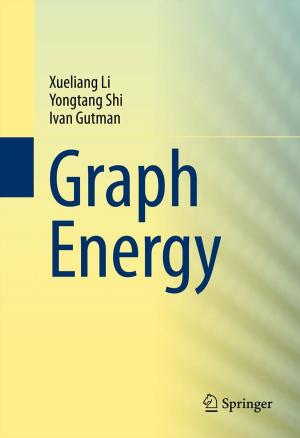Making Starships and Stargates
The Science of Interstellar Transport and Absurdly Benign Wormholes
Nonfiction, Science & Nature, Technology, Aeronautics & Astronautics, Science, Physics, Astronomy| Author: | James F. Woodward | ISBN: | 9781461456230 |
| Publisher: | Springer New York | Publication: | December 15, 2012 |
| Imprint: | Springer | Language: | English |
| Author: | James F. Woodward |
| ISBN: | 9781461456230 |
| Publisher: | Springer New York |
| Publication: | December 15, 2012 |
| Imprint: | Springer |
| Language: | English |
To create the exotic materials and technologies needed to make stargates and warp drives is the holy grail of advanced propulsion. A less ambitious, but nonetheless revolutionary, goal is finding a way to accelerate a spaceship without having to lug along a gargantuan reservoir of fuel that you blow out a tailpipe. Tethers and solar sails are conventional realizations of the basic idea.
There may now be a way to achieve these lofty objectives. “Making Starships and Stargates” will have three parts. The first will deal with information about the theories of relativity needed to understand the predictions of the effects that make possible the “propulsion” techniques, and an explanation of those techniques. The second will deal with experimental investigations into the feasibility of the predicted effects; that is, do the effects exist and can they be applied to propulsion? The third part of the book – the most speculative – will examine the question: what physics is needed if we are to make wormholes and warp drives? Is such physics plausible? And how might we go about actually building such devices? This book pulls all of that material together from various sources, updates and revises it, and presents it in a coherent form so that those interested will be able to find everything of relevance all in one place.
To create the exotic materials and technologies needed to make stargates and warp drives is the holy grail of advanced propulsion. A less ambitious, but nonetheless revolutionary, goal is finding a way to accelerate a spaceship without having to lug along a gargantuan reservoir of fuel that you blow out a tailpipe. Tethers and solar sails are conventional realizations of the basic idea.
There may now be a way to achieve these lofty objectives. “Making Starships and Stargates” will have three parts. The first will deal with information about the theories of relativity needed to understand the predictions of the effects that make possible the “propulsion” techniques, and an explanation of those techniques. The second will deal with experimental investigations into the feasibility of the predicted effects; that is, do the effects exist and can they be applied to propulsion? The third part of the book – the most speculative – will examine the question: what physics is needed if we are to make wormholes and warp drives? Is such physics plausible? And how might we go about actually building such devices? This book pulls all of that material together from various sources, updates and revises it, and presents it in a coherent form so that those interested will be able to find everything of relevance all in one place.















